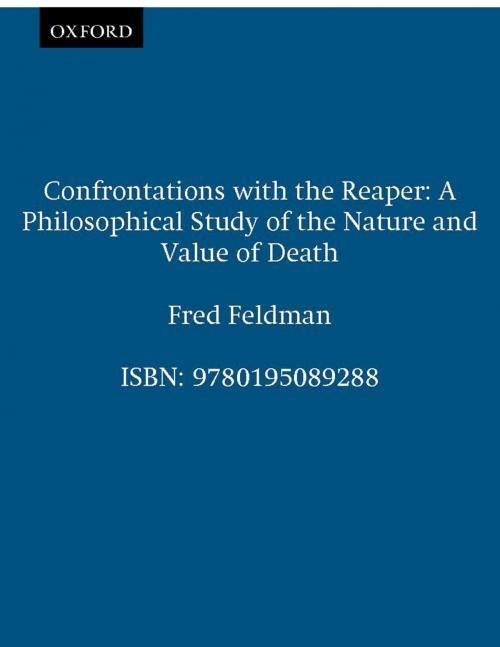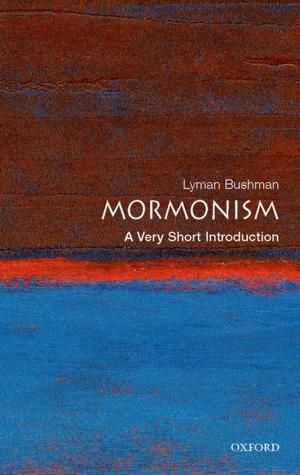Confrontations with the Reaper
A Philosophical Study of the Nature and Value of Death
Nonfiction, Religion & Spirituality, Philosophy, Religious, Ethics & Moral Philosophy| Author: | Fred Feldman | ISBN: | 9780190282332 |
| Publisher: | Oxford University Press | Publication: | January 13, 1994 |
| Imprint: | Oxford University Press | Language: | English |
| Author: | Fred Feldman |
| ISBN: | 9780190282332 |
| Publisher: | Oxford University Press |
| Publication: | January 13, 1994 |
| Imprint: | Oxford University Press |
| Language: | English |
What is death? Do people survive death? What do we mean when we say that someone is "dying"? Presenting a clear and engaging discussion of the classic philosophical questions surrounding death, this book studies the great metaphysical and moral problems of death. In the first part, Feldman shows that a definition of life is necessary before death can be defined. After exploring several of the most plausible accounts of the nature of life and demonstrating their failure, he goes on to propose his own conceptual scheme for death and related concepts. In the second part, Feldman turns to ethical and value-theoretical questions about death. Addressing the ancient Epicurean ethical problem about the evil of death, he argues that death can be a great evil for those who die, even if they do not exist after death, because it may deprive them of the goods they would have enjoyed if they had continued to live. Confrontations with the Reaper concludes with a novel consequentialist theory about the morality of killing, applying it to such thorny practical issues as abortion, suicide, and euthanasia.
What is death? Do people survive death? What do we mean when we say that someone is "dying"? Presenting a clear and engaging discussion of the classic philosophical questions surrounding death, this book studies the great metaphysical and moral problems of death. In the first part, Feldman shows that a definition of life is necessary before death can be defined. After exploring several of the most plausible accounts of the nature of life and demonstrating their failure, he goes on to propose his own conceptual scheme for death and related concepts. In the second part, Feldman turns to ethical and value-theoretical questions about death. Addressing the ancient Epicurean ethical problem about the evil of death, he argues that death can be a great evil for those who die, even if they do not exist after death, because it may deprive them of the goods they would have enjoyed if they had continued to live. Confrontations with the Reaper concludes with a novel consequentialist theory about the morality of killing, applying it to such thorny practical issues as abortion, suicide, and euthanasia.















